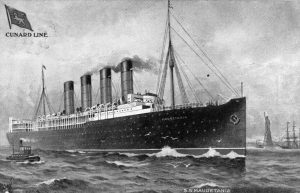 The answer to this question may seem obvious. I teach English.
The answer to this question may seem obvious. I teach English.
But what exactly does that mean?
Allow me to illustrate with some famous examples.
In 1900 the CEO of Cunard probably would have answered the same question by saying he was in the trans-Atlantic shipping business. He would have been wrong. Despite surviving the Great Depression and two world wars, in 1958 jet airliners began flights between the UK and the USA, and in 1968 Cunard withdrew its year-round service. Cunard wasn’t in the trans-Atlantic shipping business. It was in the trans-Atlantic people-moving business. Airplanes move people quicker than ships.
Kodak probably thought they were in the film and camera photography business. They weren’t. They were in the memory business. Who has a camera with film these days? Kodak lost business to digital photography in the 1990s and by 2012 had filed for bankruptcy protection.
The ice trade used to harvest natural ice in New England and Scandinavia and transport it as far as India, China, South America and Australia. The business was worth hundreds of millions of dollars, but was overtaken in the early twentieth century by artificially produced ice. In turn this has been largely replaced by fridge-freezers. We all make ice at home now. None of the 19th-century ships or huge warehouses were actually in the ice trade, they were in the cooling business.
So where does that leave English schools? Here in Japan, unlike in all other Asian countries, there is no recognisable correlation between English ability and earning ability. There are exceptions, like Rakuten and its ‘Englishnization’, but the majority of students do not study English to further their careers.
They do it for other reasons, and may choose an alternative method at any time.
We’ll look at the reasons and alternatives in more detail next time.
Updated at 17:00 JST, March 6th, 2019: I’m heading to London tomorrow for the Book Fair and see family. I’ll make a couple of interim posts and the blog will get back to normal in a couple of weeks.
